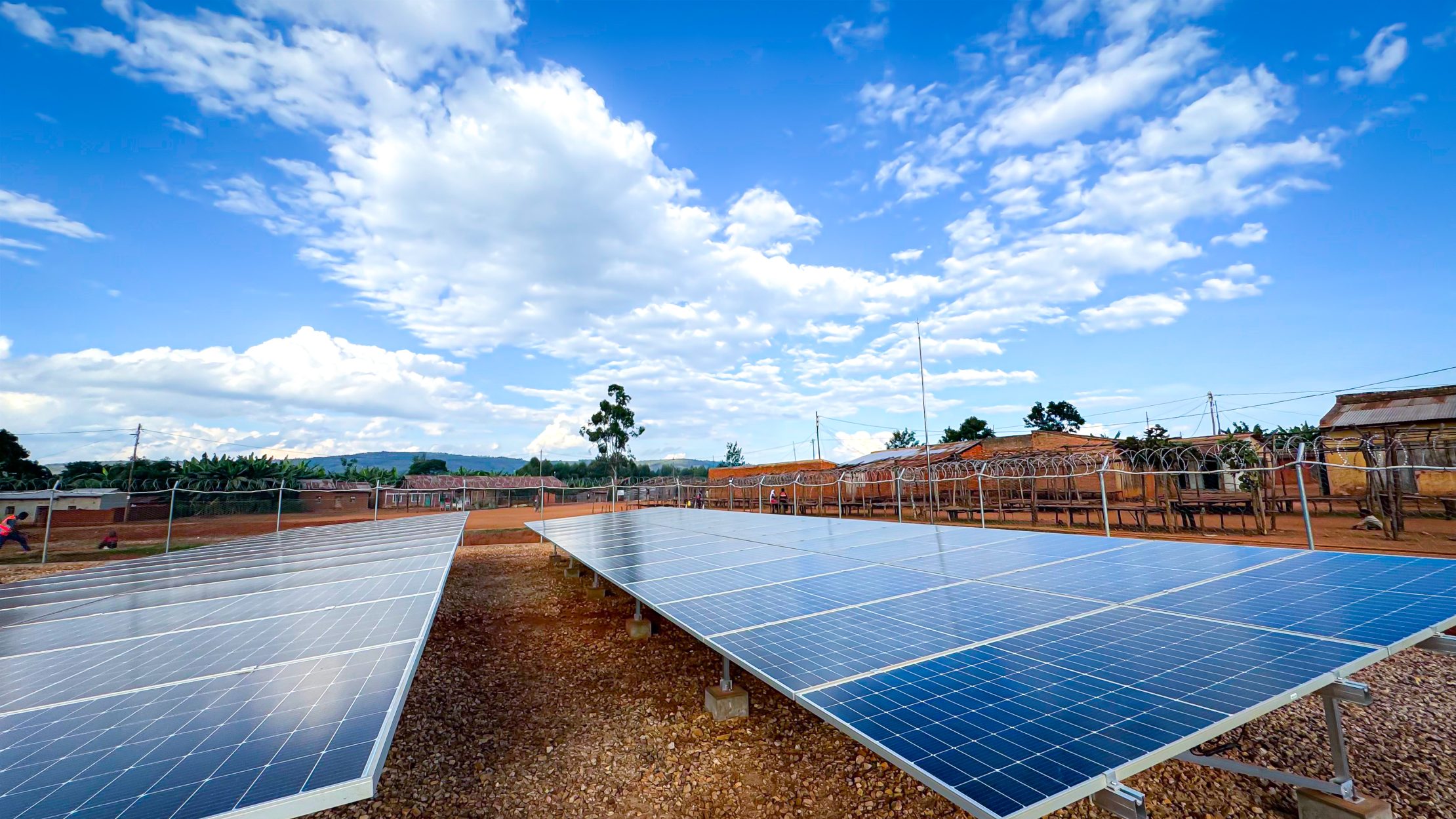
Photo: Landry Gakuba / UNDP Burundi
It’s become widely recognized that a centralized grid alone cannot meet Africa's energy access needs, especially in rural areas. Off-grid renewable energy solutions, on the other hand, are proving to be the most effective and least costly option. They are rapidly transforming rural communities, bringing sustainable and affordable electricity to areas that have long been overlooked. Rightfully, these decentralized systems are now at the forefront of efforts to light up Africa.
The tools, expertise, and mechanisms to achieve universal energy access in Africa are within our reach. However, the real challenge to scaling off-grid renewable energy solutions in Africa isn’t just about technology or financing—it’s also about creating the right legal and regulatory environment. Without clear, enforceable policies and laws, investment will remain limited, and progress stalled.
About 60 million people in Africa already have electricity access through off-grid solutions. Despite this progress, distributed renewable energy solutions, including stand-alone systems and minigrids, continue to face a series of challenges, including unpredictable legal and regulatory environments that are preventing the private sector from investing. Although off-grid solutions present a huge opportunity – they are still not considered attractive to investors. However, this may soon change – and the current momentum created by the World Bank, the African Development Bank and partners’ M300 is a reminder that the potential for off-grid solutions is massive.
As UNDP, we’ve learned through our work on the Africa Minigrids Program that unlocking this potential requires more than just technology. It requires bringing together governments, investors, and communities to create the legal structures and political buy-in that will enable real, sustainable impact.
We already tackling some of the greatest obstacles facing the scaling-up off-grid solutions and focusing on one key requirement: building the enabling environment. UNDP’s Energy governance framework advocates for legal and regulatory standards which is the basis for creating a conducive and inclusive enabling environment to promote distributed renewable energy, encourage private investments, support new clean energy innovations and foster innovative business models for the energy sector. UNDP’s Africa Minigrids Program, in partnership with RMI, the African Development Bank and with funding from the Global Environment Fund, is also addressing the policy and regulations challenges in the renewable energy minigrid sector in an initial 21 African countries. The aim of the programme is to increase the financial viability and promote scaled-up commercial investments in renewable energy minigrids in Africa.
To put the lessons we’ve learnt from UNDP’s Africa Minigrids Program into focus, I’d like to highlight three key takeaways:
- We need to address regulatory risks head-on to boost investment in the distributed renewable energy sector. A clear legal framework that defines the role of off-grid solutions in closing Africa’s energy access gap is critical. This includes enforceable provisions, sound policies, and an inclusive, transparent tariff-setting regime—key factors in giving investors the confidence they need. A strong legal framework acts as both a safeguard and an incentive, reducing perceived risks and potentially lowering tariffs for end-users, especially in hard-to-reach areas. Through the Africa Minigrids Program, we've learned that an essential step in this process are inclusive national dialogues that focus on minigrid delivery models, tariff structures, and grid-arrival options, along with their legal and policy implications. Additionally, we must promote the standardization of legal frameworks and tools across the continent. While Africa's diversity requires country-specific approaches, a regional regulatory strategy has the potential to attract more private sector investment. Standard legal principles, developed through multi-stakeholder collaboration, are key to addressing challenges throughout the renewable energy minigrid value chain.
- Second, there is a need for targeted capacity-building programmes that address not only the legal and regulatory challenges in the off-grid renewable energy value chain but also the policy and business issues underpinning long-term financial sustainability. Through the Africa Minigrid Program, UNDP is providing tailored training via our Community of Practice platform and partnerships with the African Forum of Utility Regulators (AFUR) and RMI. These trainings are enhancing the technical capacity of off-grid renewable energy agencies and stakeholders, focusing on standardized mini-grid tariff-setting approaches and tools. The goal is to equip African countries with robust, adaptable tariff-setting mechanisms that can evolve to meet emerging market needs and challenges.
- Finally, we need to translate policy into enforceable legislation. While creating enabling policies and plans for minigrid development is a positive step, a confusing and vague policy environment can discourage private sector investment. One key challenge we’ve seen is the reluctance of successive governments to uphold policies inherited from their predecessors, along with arbitrary changes to institutional arrangements and mandates. To attract large-scale financing and ensure the commercial viability of renewable energy minigrids, a clear legal framework is needed—one that addresses technical standards and contractual arrangements, especially in the face of technological advancements.
With five years left to meet the Sustainable Development Goals (SDGs), particularly SDG 7 on universal access to electricity, Africa faces a crucial turning point amidst the excitement of M300. Let’s remember the challenge isn’t only about providing technology or finance; it’s about removing the regulatory and legal obstacles that continue to hinder progress in off-grid renewable energy. Success will depend on forging strong, meaningful partnerships across all sectors, working together to create an environment where private investment can thrive and off-grid solutions can scale.
By addressing these challenges head-on, we can extend energy access to the hardest-to-reach rural communities, where the majority of Africa's unconnected population resides. With the right legal frameworks, targeted capacity-building, and policy enforcement, we have the tools to unlock the full potential of off-grid energy solutions, transforming lives, boosting economies, and lighting up Africa’s future.
Editor’s Note: If you found this blog useful, check out our explainer on mitigation.